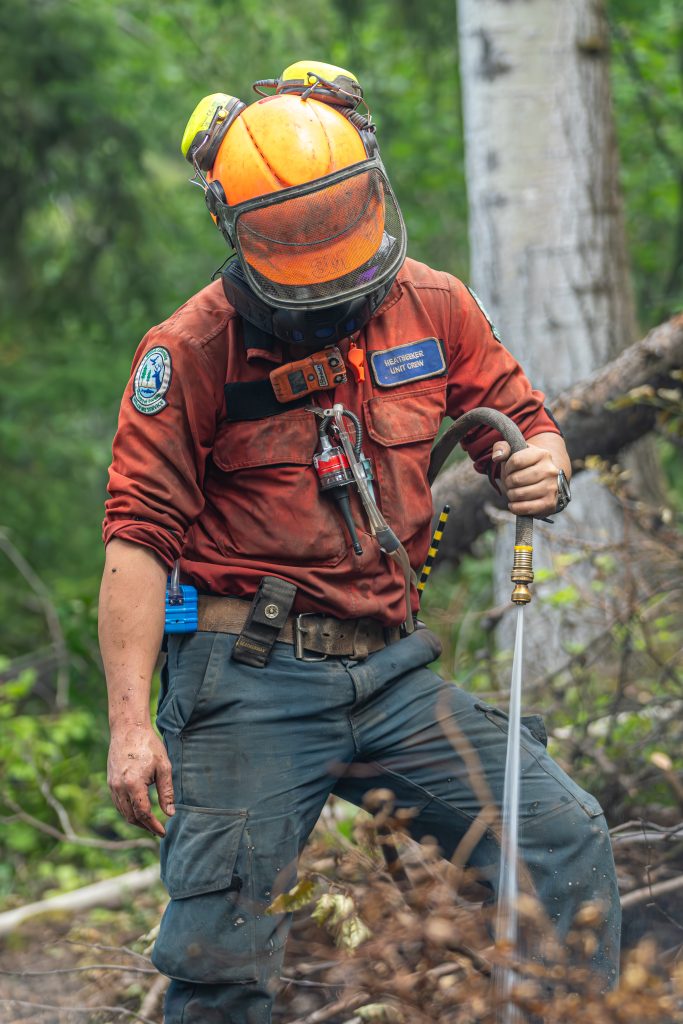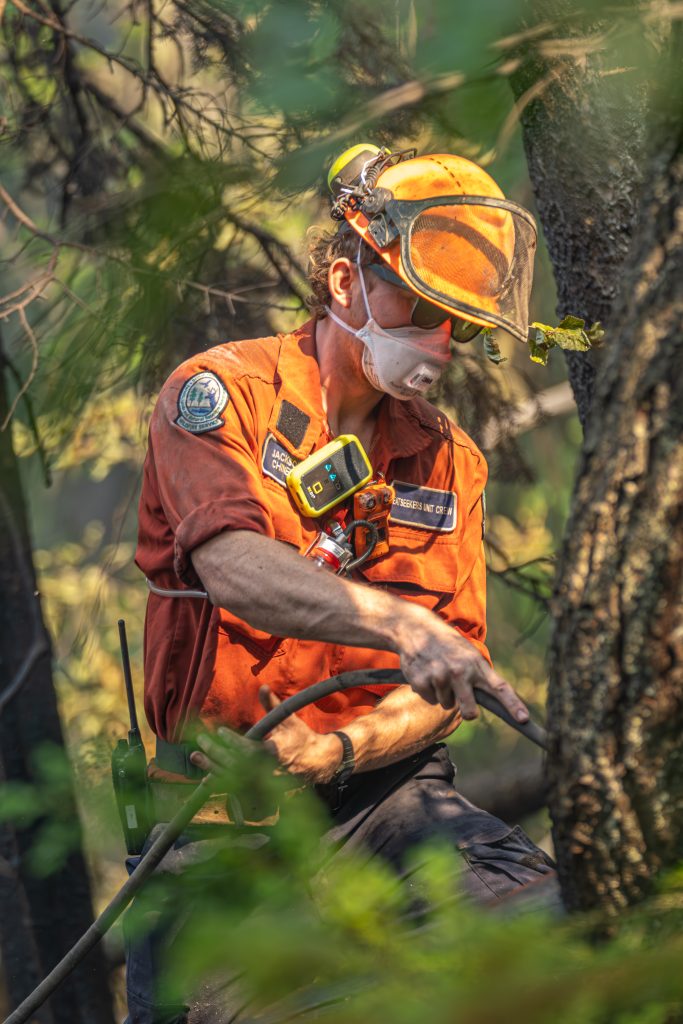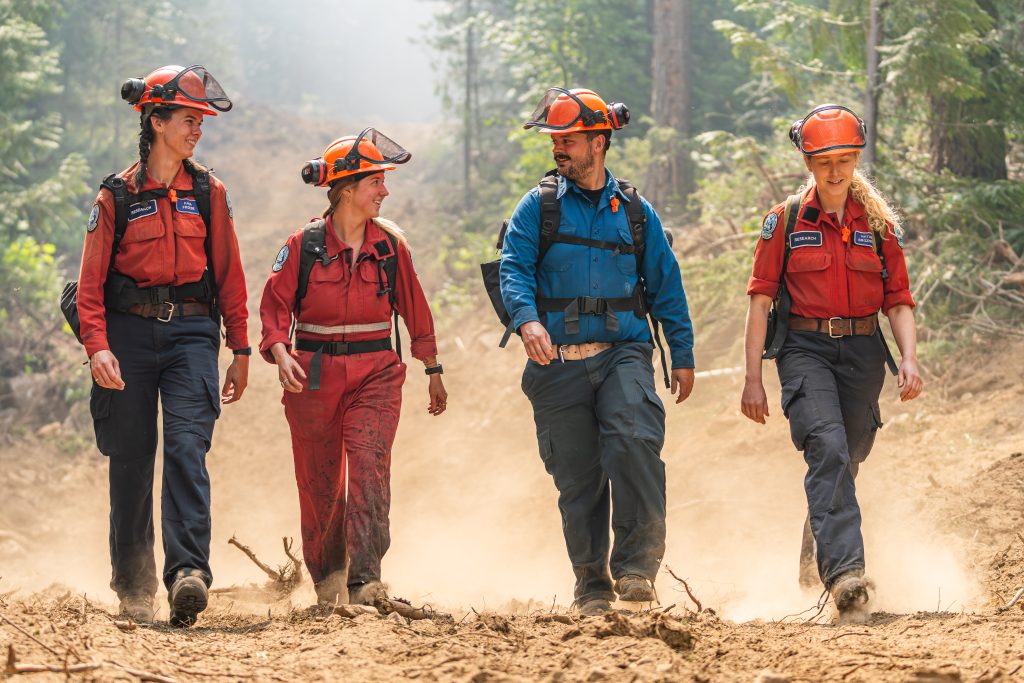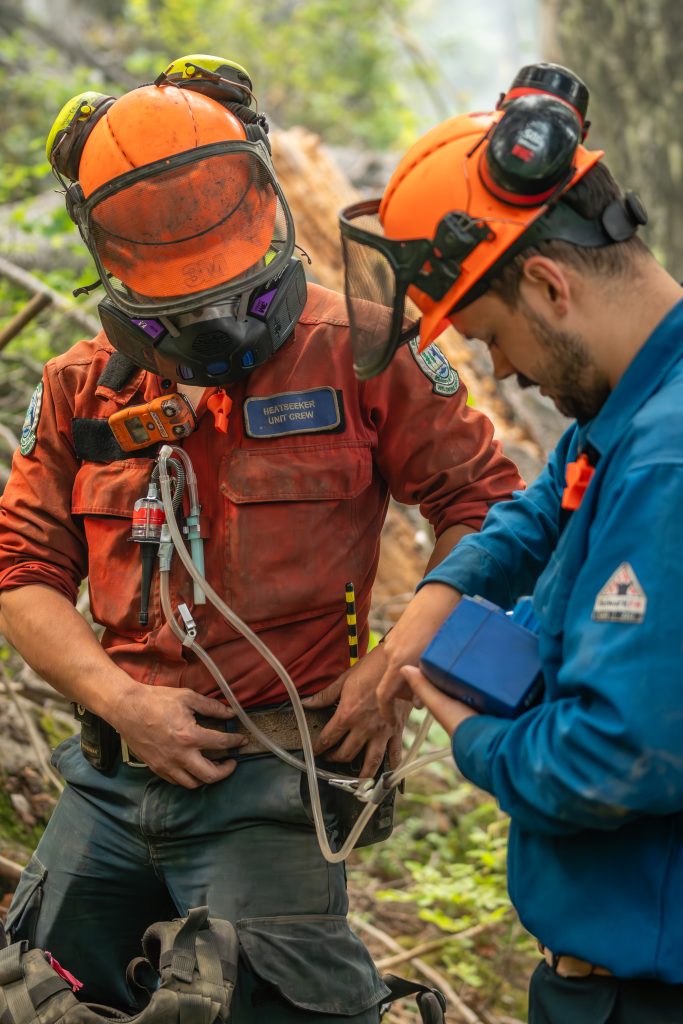
The BC Wildfire Service has partnered with the University of British Columbia – Okanagan and Canada Wildfire on a research project designed to learn more about how wildland smoke and ash, and dust affects the cardiorespiratory system of wildland firefighters across multiple fire seasons.
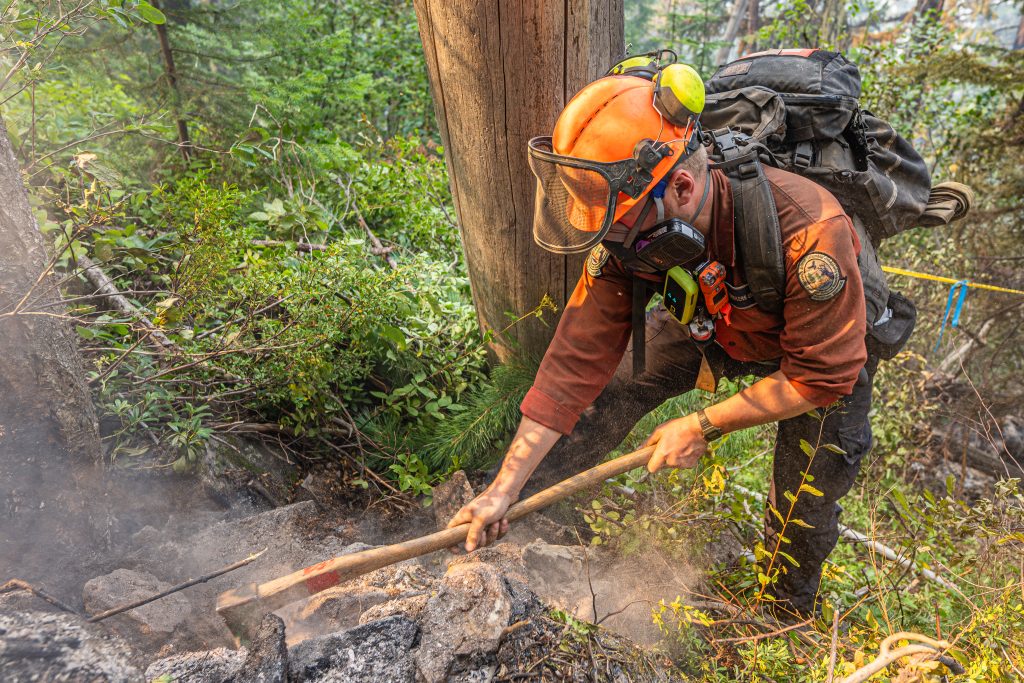
A research team composed of BC Wildfire Service Research & Innovation staff, UBCO researchers, and Canada Wildfire staff has been working on the Slocan Complex with participating Initial Attack and Unit Crews to conduct lung function tests before and after crews’ daily work on the fireline. Participants also wear personal air monitoring equipment that detects the presence and concentration of respirable particulates, silica, and carbon monoxide. A detailed battery of additional cardiorespiratory health measures are also gathered by a team from UBCO before and after each fire season.
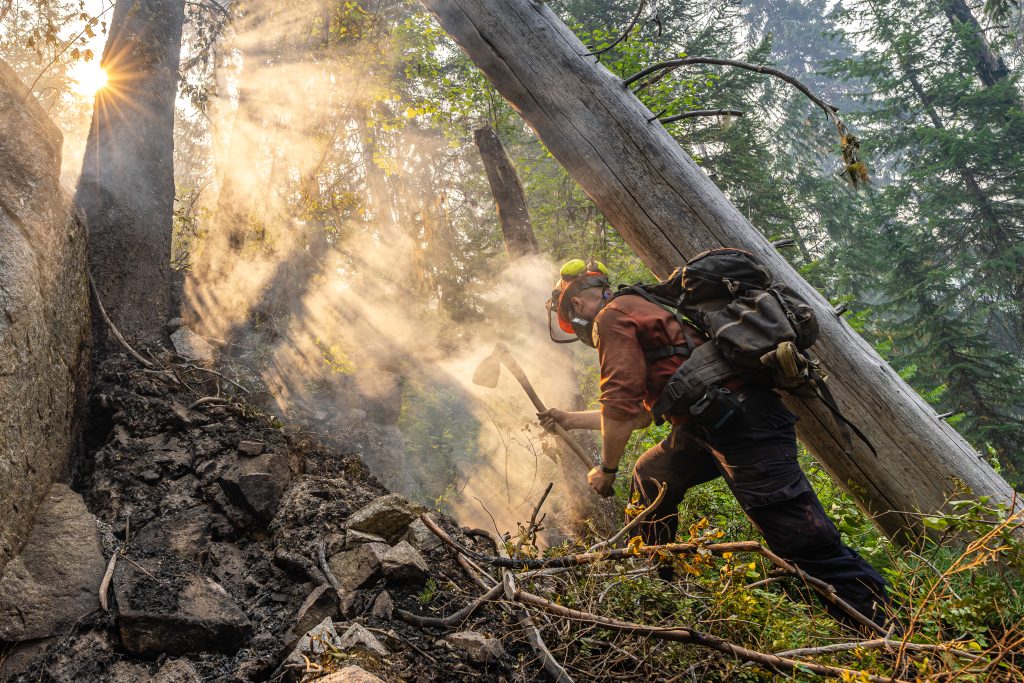
Results from this research are expected to be valuable in contributing to a more holistic understanding of exposure in wildland firefighters, addressing gaps in knowledge of cardiorespiratory health outcomes across multiple fire seasons, and helping inform targeted feasible mitigation strategies.
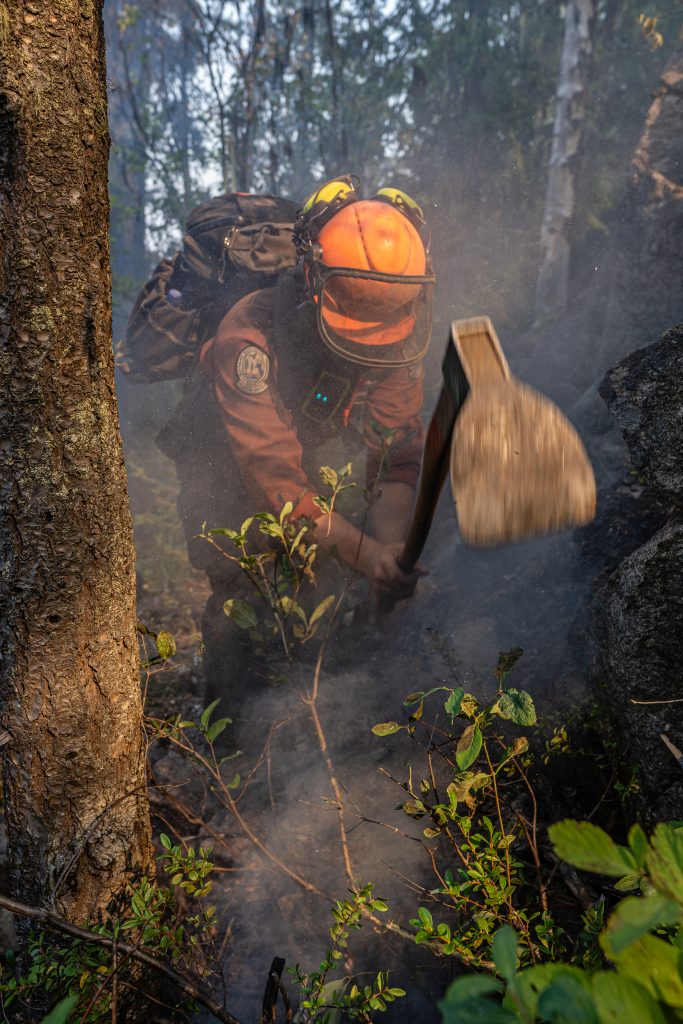
In addition to data collection for this project, the BC Wildfire Service Research & Innovation and Canada Wildfire staff have also been using their time on the Slocan Complex to gather data for a variety of other ongoing health research and innovation projects, including air monitoring at fire camps, visual smoke educational tool development and small engine exhaust and hand-arm vibration exposure assessments.
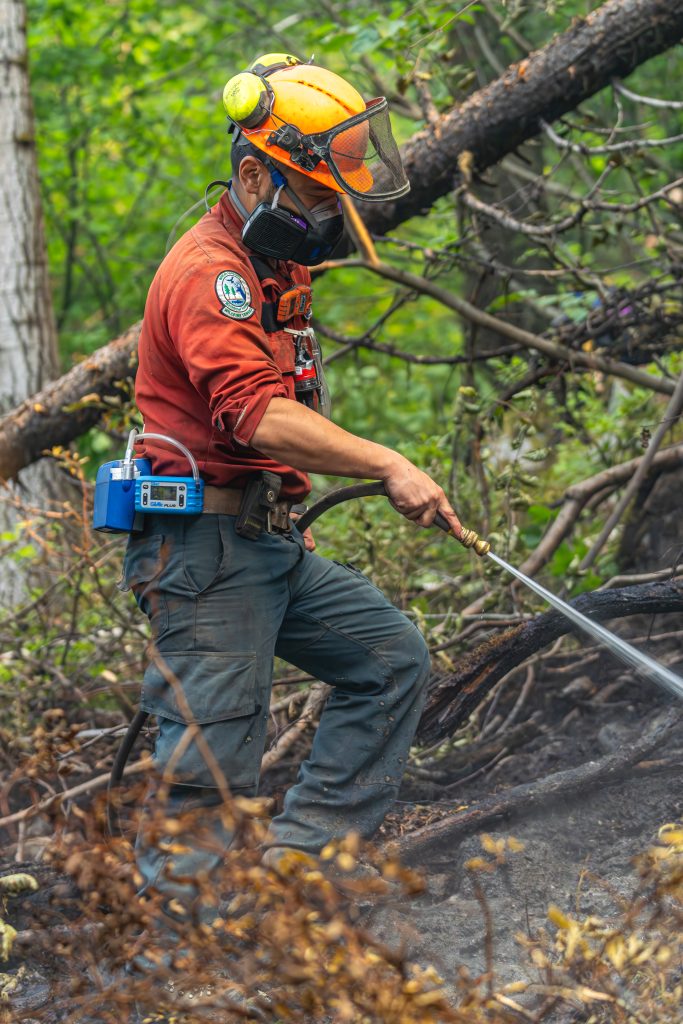
Some of the firefighters pictured are wearing respiratory protection. The introduction of respiratory protection into the BCWS has been informed by previous research. Although not a key part of the current cardiorespiratory research project, use of respiratory protection by project participants is being accounted for as part of the suite of data collected and analyzed for this project.
